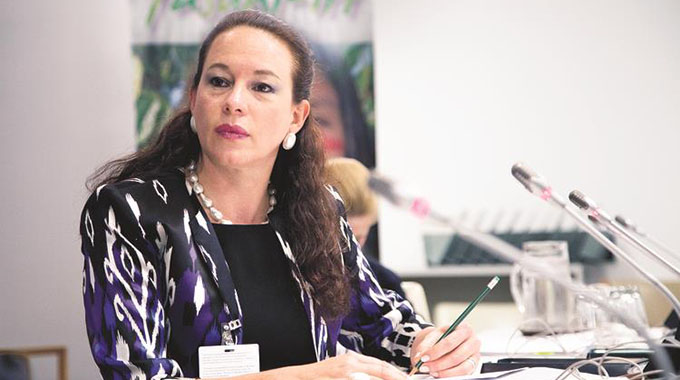Ecuador foreign minister elected UN General Assembly president

UNITED NATIONS. – The United Nations (UN) General Assembly on Tuesday picked Maria Fernanda Espinosa Garces (pictured above), Ecuador’s minister for foreign affairs and human mobility, to be its next president.
The 193-member General Assembly, one of the highest policy-making bodies at the United Nations, will have a woman presiding over it for the fourth time in UN history.
Garces beat Mary Elizabeth Flores Flake, permanent representative of Honduras to the United Nations, by 128-62 votes. She will succeed Slovakia’s Miroslav Lajcak and preside over the 73rd session starting from September. The tenure is for a year.
“We have the challenge of building a stronger and more efficient organisation,” Garces said after winning the election, adding that “strengthening multilateralism is not an option, it is an obligation”.
“Therefore, it is urgent that the United Nations show the capacity to respond to the main global challenges, and that the organisation is brought closer to the people, connecting its decisions directly to its beneficiaries, the citizens of the world,” she noted.
Highly commending what the General Assembly has achieved under the leadership of Miroslav Lajcak and extending his warm congratulations to the president-elect, UN Secretary-General Antonio Guterres noted that “it has been more than a decade since a woman has served as president of the General Assembly, when Sheikha Haya Rashed Al-Khalifa of Bahrain was president of the 61st session”.
“The world faces urgent and complex challenges, from churning conflicts to rising inequality and the deepening impacts of climate change,” the UN chief noted.
“This Assembly, the global town hall, has a vital role to play in debating the issues and, most of all, in delivering solutions that make a meaningful difference in people’s lives,” he added.
By tradition, the UN’s regional groups nominate a single candidate who is then approved by the Assembly. But this year the election was being contested for the first time since 1991, because Latin American countries (LAC) couldn’t agree on a nominee. – Xinhua.









Comments